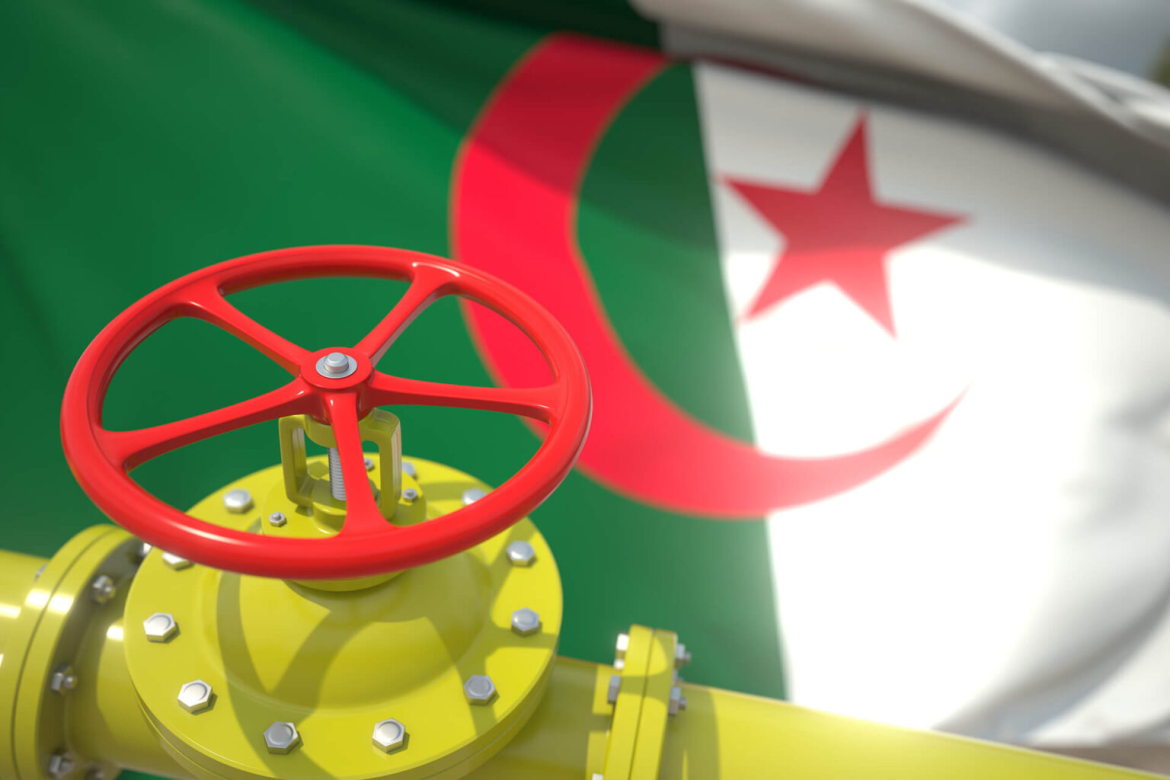KEY POINTS
- Algeria’s 4.5 trillion cubic meters of gas reserves strengthen Europe’s energy diversification and reduce reliance on Russian imports.
- Strategic pipelines like Medgaz and TransMed ensure Algeria’s reliable gas flow to Europe, boosting energy stability and resilience.
- Algeria-Europe energy cooperation fosters investment, economic growth, and progress toward sustainable energy solutions.
Algeria’s significant natural gas reserves have long positioned it as a critical player in global energy markets (ISPI, 2024).
With Europe’s increasing energy demands and its drive to transition away from coal and reduce carbon emissions, Algeria’s role in supporting European energy security is more essential than ever (ECFR, 2022).
The continent’s reliance on natural gas as a transitional energy source highlights the importance of reliable and diversified suppliers.
Algeria, endowed with vast reserves and strategic proximity to Europe, emerges as a cornerstone of this strategy (IEA).
In the face of rising geopolitical tensions and fluctuating energy markets, Algeria’s gas resources offer not only an abundant supply but also a stable and sustainable option for Europe (AfDB).
Let’s explore how Algeria’s gas reserves underpin Europe’s energy stability, addressing critical opportunities and challenges in fostering stronger energy cooperation.
Algeria’s gas reserves
Algeria’s natural gas reserves are among the largest in the world, with an estimated 4.5 trillion cubic meters of proven reserves (IMF eLibrary, 2002).
Central to this wealth is the Hassi R’Mel gas field, one of the world’s largest, contributing significantly to Algeria’s annual production of over 100 billion cubic meters (ITA, 2023).
This vast field alone underscores Algeria’s ability to maintain its status as a top-tier global gas producer. Complementing Hassi R’Mel is the Gassi Touil field, a vital asset that enhances Algeria’s production portfolio (ISPI, 2024).
Algeria’s strategic approach to natural gas production has cemented its position as a leading exporter.
With robust infrastructure and significant investments in extraction and processing technologies, Algeria continues to deliver over 50 billion cubic meters of gas to Europe annually (IMF eLibrary). This consistent output not only solidifies its standing as a reliable supplier but also strengthens its economic foundation.
Europe’s energy security
Europe’s energy landscape is undergoing a significant transformation, driven by declining domestic gas production and a simultaneous increase in demand (African Journals Online, 2021).
By 2030, the International Energy Agency (IEA) predicts a 20 percent surge in Europe’s natural gas needs, emphasizing the urgency of securing diversified and dependable supply sources.
Historically, Europe has been heavily reliant on Russian gas, but geopolitical tensions have exposed the vulnerabilities of this dependence (IEA, 2023).
The need to diversify suppliers has never been more pressing, prompting Europe to explore partnerships with alternative producers like Algeria (European Union, 2024).
Moreover, the Southern Gas Corridor—a critical infrastructure project—aims to transport gas from the Caspian region to Europe, further highlighting the importance of tapping into diverse energy sources (IEA).
By integrating Algeria’s robust supply capabilities into this strategy, Europe can fortify its energy security while advancing its decarbonization goals (IRENA).
Algeria’s role in Europe’s energy security
Algeria’s proximity to Europe and its established export infrastructure make it a pivotal supplier. Key pipelines, such as Medgaz and TransMed, connect Algeria directly to Spain and Italy, ensuring a steady flow of natural gas to these markets.
These pipelines, combined with Algeria’s liquefied natural gas (LNG) facilities, offer versatile options for meeting Europe’s energy needs.
The potential for increased exports is significant. Algeria’s ongoing exploration and development of new gas fields, in collaboration with international energy companies like Eni, exemplifies its commitment to bolstering supply capacity (Fitch Solutions, 2024).
Additionally, the prospect of integrating Algeria’s resources into the Southern Gas Corridor further underscores its strategic role in Europe’s energy future.
Strengthening energy cooperation between Algeria and Europe is vital. Joint investments in exploration, technology transfer, and infrastructure development can unlock Algeria’s full potential while ensuring a stable and diversified energy supply for Europe (S&P Global, 2023).
This partnership can also drive progress in renewable energy and carbon capture initiatives, aligning with broader sustainability objectives.
Opportunities
- Energy diversification: By deepening ties with Algeria, Europe can reduce its reliance on Russian gas, enhancing energy security and geopolitical resilience. Algeria’s reserves offer a stable alternative that complements Europe’s energy diversification strategy.
- Economic growth: Increased investments in Algeria’s gas sector can stimulate job creation and economic growth. For Europe, securing a reliable energy source supports industrial stability and competitive energy pricing.
- Infrastructure development: Collaborations on pipeline expansion and LNG facilities can optimize Algeria’s export capacity, ensuring seamless delivery to European markets.
Challenges
- Global competition: Algeria faces competition from other gas-exporting nations such as Qatar and the United States. Europe’s pursuit of diversified suppliers means Algeria must remain competitive on pricing and reliability.
- Infrastructure bottlenecks: Existing pipelines and LNG terminals may require upgrades to handle increased exports. Addressing these constraints is critical for maximizing Algeria’s export potential.
- Geopolitical instability: Regional tensions and internal political challenges in Algeria could impact energy production and export continuity. Proactive measures to ensure stability are essential for long-term energy partnerships.
Algeria’s vast natural gas reserves represent a cornerstone of stability for Europe’s energy security.
By leveraging its strategic geographic position, robust production capabilities, and commitment to international cooperation, Algeria can play a transformative role in Europe’s energy future (ISPI, 2024).
While challenges persist, targeted investments and strengthened partnerships can unlock significant opportunities, fostering mutual economic growth and energy resilience.
For Europe, Algeria is more than a supplier; it is a partner in navigating the complex transition toward sustainable and secure energy.
By embracing this partnership, both regions can achieve shared goals of diversification, stability, and sustainability in a rapidly evolving energy landscape.



